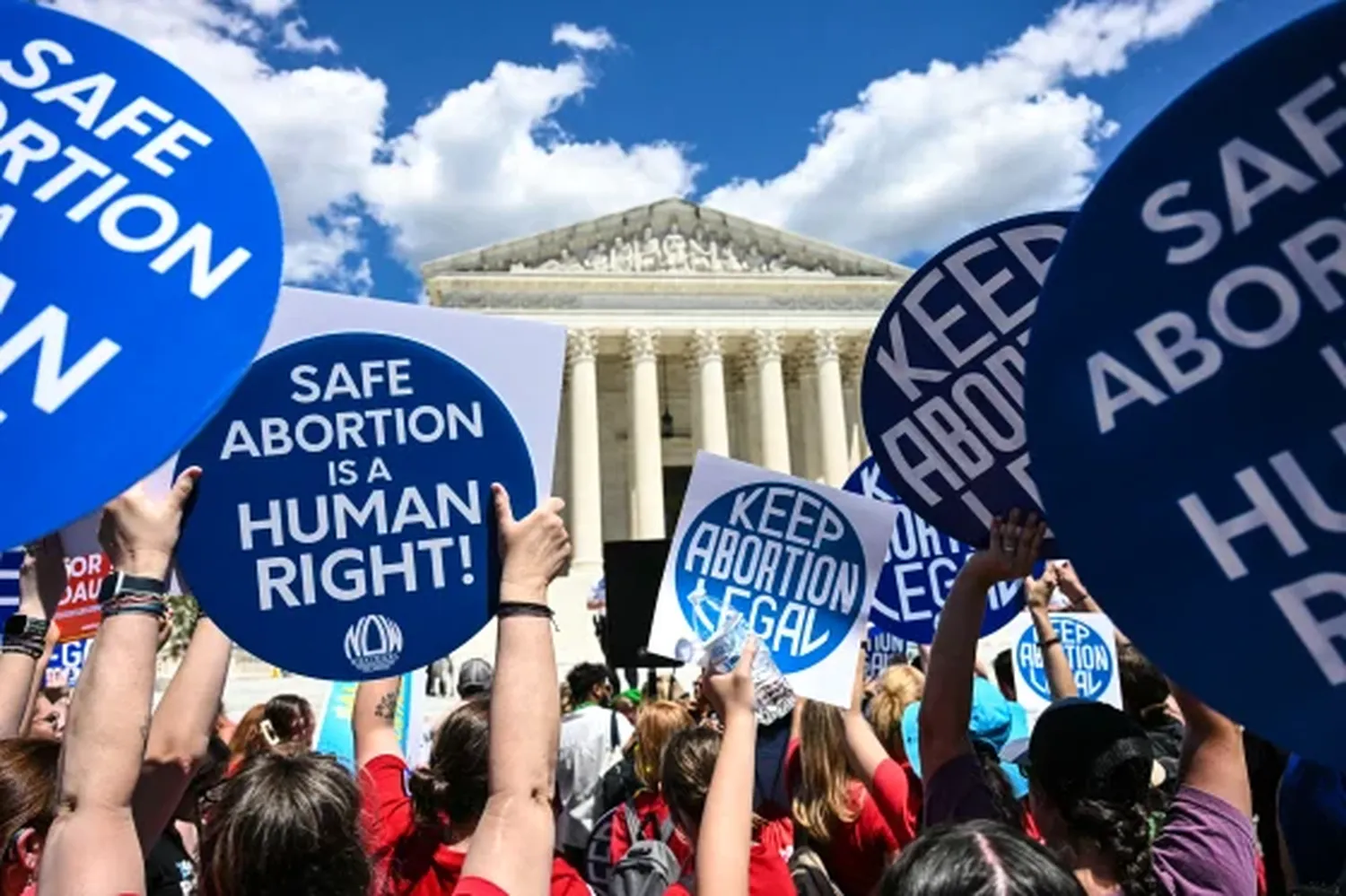Idaho abortion case
Supreme Court Acknowledges Accidental Posting of Idaho Abortion Case Document
A copy of the document posted online and then removed suggested that the court will dismiss the dispute over Idaho abortion law
Washington, D.C. — In an unexpected turn of events, the U.S. Supreme Court has acknowledged the accidental posting of a document related to a high-profile abortion case in Idaho. The document, which was briefly available on the court's website before being removed, suggests that the court may be leaning towards a decision that would allow emergency abortions in the state, marking a potential narrow victory for the Biden administration.
The document, obtained by Bloomberg Law, indicates that the Supreme Court is poised to dismiss an appeal by Idaho officials, thereby reinstating a lower court ruling that permits hospitals to perform emergency abortions to protect the health of the mother. This development comes amid ongoing legal battles over state-level abortion restrictions following the Supreme Court's landmark decision to overturn Roe v. Wade two years ago.
The Leaked Document
Supreme Court spokesperson Patricia McCabe confirmed the accidental upload, emphasizing that the official ruling has not yet been released. "The document was posted inadvertently and has since been removed," McCabe stated, adding that the court's final opinion will be issued in due course.
According to the leaked document, the court's decision would temporarily allow emergency room doctors in Idaho to conduct abortions in specific circumstances, aligning with the Biden administration's stance that federal law mandates such procedures to safeguard women's health. The document suggests a 6-3 vote in favor of this outcome, with Justices Clarence Thomas, Samuel Alito, and Neil Gorsuch dissenting.
Legal and Political Implications
The case centers on the conflict between Idaho's stringent abortion law and the federal Emergency Medical Treatment and Labor Act (EMTALA), which requires hospitals to provide emergency medical care, including abortions, when necessary to stabilize a patient's condition. The Biden administration argues that EMTALA should take precedence over state laws that impose near-total bans on abortion.
If the court's final ruling aligns with the leaked document, it would uphold the 9th U.S. Circuit Court of Appeals' decision in favor of the Biden administration. This would mean that Idaho hospitals could perform emergency abortions without facing prosecution under state law, a significant development for women's health rights in the state.
Reactions and Future Outlook
The accidental leak has sparked a range of reactions from both sides of the abortion debate. Liberal Justice Ketanji Brown Jackson expressed frustration with the delay in resolving the broader issue, stating in the leaked document that the outcome "is not a victory for pregnant patients in Idaho. It is a delay." She emphasized the precarious position of pregnant individuals experiencing emergency medical conditions while legal uncertainties persist.
On the other hand, conservative justices have voiced their opposition to the potential ruling. Justice Samuel Alito, in his dissent, argued that the court should not intervene in state-level abortion regulations, reflecting the broader conservative push to limit federal oversight in such matters.
The White House and the Department of Justice have refrained from commenting on the leaked document, awaiting the official release of the Supreme Court's opinion. However, the Biden administration has consistently advocated for the protection of abortion rights, particularly in emergency medical situations.
Broader Context
This case is one of several significant abortion-related disputes pending before the Supreme Court this term. The court's decision will have far-reaching implications not only for Idaho but also for other states with similar restrictive abortion laws. The legal battle underscores the ongoing tension between state and federal authorities over the regulation of abortion, a contentious issue that continues to polarize the nation.
As the Supreme Court prepares to conclude its current term, all eyes are on the final rulings that will shape the future of abortion access in the United States. The accidental leak of the Idaho case document has added an unexpected twist to an already complex and highly charged legal landscape.
In the coming days, the Supreme Court is expected to issue its official opinions on this and other pending cases, providing clarity on the legal status of emergency abortions and the extent of federal authority in safeguarding women's health rights. Until then, the nation remains in a state of anticipation, with the potential for significant legal and political ramifications hanging in the balance.

